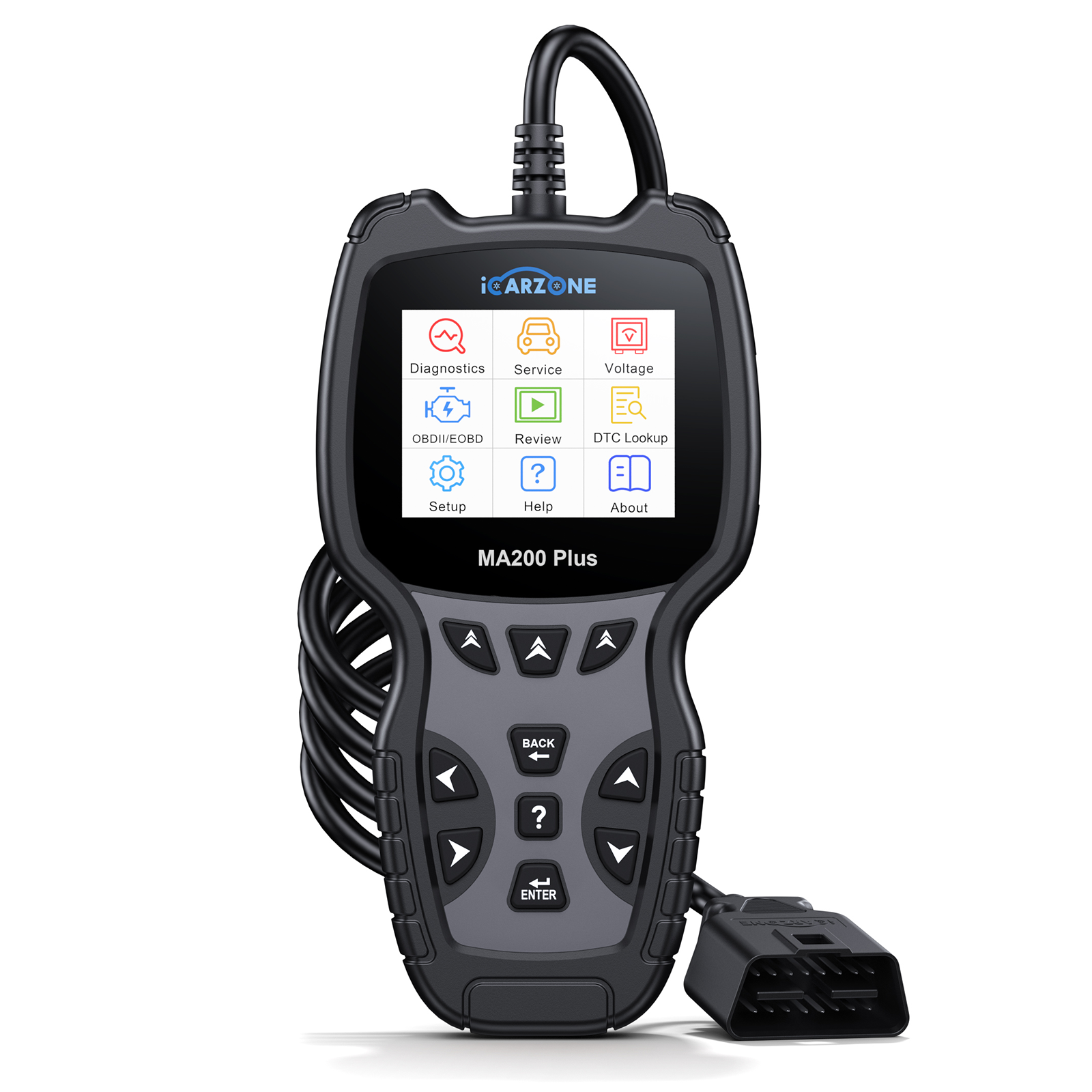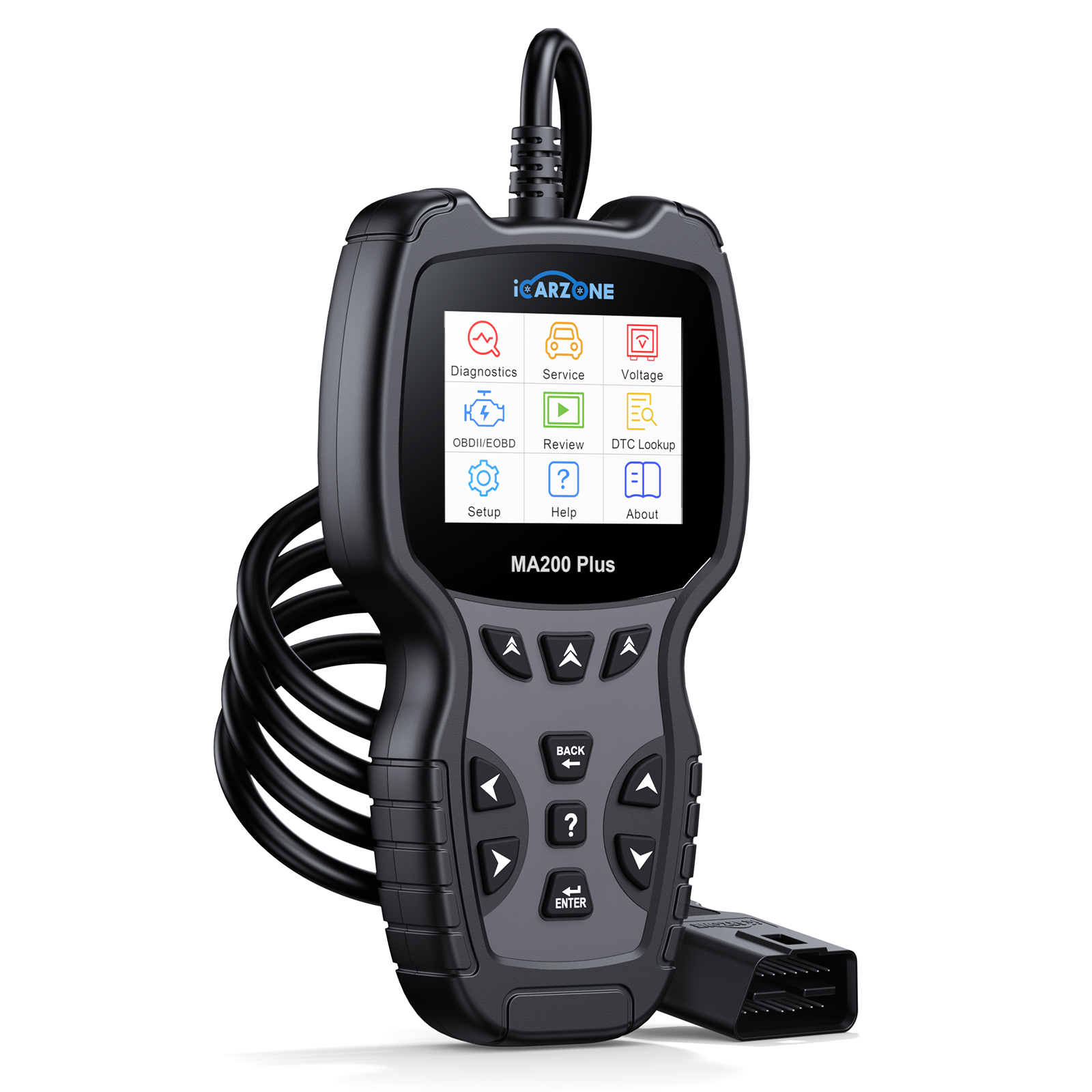P1556-P1557 Turbo Boost Control Fault | UR800 Diagnostic Guide

P1556-P1557: Boost Pressure Control / Turbo Underboost
Diagnose P1556-P1557 in Ford, Volkswagen, Audi, Skoda, and Seat vehicles. Learn causes, symptoms, and fixes using the ICARZONE UR800 scanner.
Get ICARZONE UR800 Now1. What is P1556-P1557?
P1556-P1557 indicates a problem with boost pressure control or turbo underboost. The turbocharger boost control system manages airflow and pressure via electronic actuators and sensors. P1556-P1557 occurs when measured boost is too high or too low.
Symptoms include reduced engine power, hesitation, and turbo lag. Early diagnosis prevents further ECU complications.
Impact on VW, Audi, Skoda, Ford & Seat
Modern turbo engines rely heavily on electronic boost control. A failing actuator, solenoid, or sensor triggers warning lights and may cause limp mode. Timely repair restores optimal performance and fuel efficiency.
2. Common Causes in VW, Audi, Ford & Seat
P1556-P1557 can result from multiple sources. Examples:
- Faulty Turbo Boost Actuator — UR800 readings show boost pressure deviation; actuator replacement resolved P1556.
- Damaged Wiring / Connector — Corroded or frayed wires between ECU and boost actuator caused intermittent P1557.
- Faulty MAP / Boost Sensor — Incorrect pressure readings triggered P1556-P1557; sensor replacement fixed the issue.
- ECU Software / Calibration — Certain VW/Audi models misreport boost; UR800 recommended ECU update.
3. Key Symptoms
- Check Engine Light with P1556 or P1557
- Loss of power / reduced acceleration
- Turbo lag or inconsistent boost
- Fuel consumption increase
- Limp mode activation in some cases
4. Models Prone to P1556-P1557
- Volkswagen: 2018–2023 Golf GTI, 2019–2023 Tiguan 2.0T
- Audi: 2018–2023 A3 2.0T, 2019–2023 Q3 2.0T
- Skoda / Seat: Octavia 1.8T/2.0T, Leon 1.8T
- Ford: EcoBoost 1.5L / 2.0L engines (Focus, Kuga)
Relevant TSBs: VW 21G045, Audi 22-NA-150, Ford 23-1550.
5. Diagnostic Steps with UR800
| Step | Action | Goal | Pass/Fail |
|---|---|---|---|
| 1 | Scan for P1556/P1557 | Identify code and related boost errors | Pass: Only P1556/P1557 | Fail: Multiple boost or ECU codes |
| 2 | Live Data: Boost pressure and actuator current | Check proper boost values | Pass: Normal range | Fail: High/low boost or erratic |
| 3 | Inspect wiring/connectors | Check corrosion or damage | Pass: Clean & proper wiring | Fail: Replace |
| 4 | Replace actuator / sensor | Verify code clearance | Pass: Code cleared | Fail: ECU calibration required |
| 5 | ECU update / calibration | Ensure latest software | Pass: Updated | Fail: Update required |
6. Fixes & Execution
- Replace faulty turbo boost actuator
- Repair/replace wiring harness or connectors
- Replace or clean MAP/boost sensor
- Update ECU software if misreporting boost
- Test drive to ensure proper boost and code clearance
7. Repair Costs & Safety Tips
- Turbo Boost Actuator: $120–$350
- MAP / Boost Sensor: $60–$150
- Wiring repair: $50–$120
- ECU update: $0–$50
- Labor: $80–$160 depending on model
- Disconnect battery before service
- Inspect turbo and hoses while servicing
8. Preventive Maintenance
- Inspect actuator, sensor, and connectors every 20,000 miles
- Check hoses for leaks or damage
- Keep intake and turbo clean
- Use UR800 to monitor live boost data
- Ensure ECU software is up-to-date
9. Frequently Asked Questions
10. Summary
P1556-P1557 indicates turbo boost or pressure control issues. Key steps: scan codes, check live data, inspect wiring and sensors, replace faulty parts, verify ECU calibration. Affects VW, Audi, Skoda, Seat, and Ford engines. Use ICARZONE UR800 for fast and accurate diagnosis.
Diagnose P1556-P1557 Quickly
Get the ICARZONE UR800 scanner for full DTC coverage, live boost monitoring, and actuator diagnostics for VW, Audi, Skoda, Seat, and Ford vehicles.
Buy UR800 Now








